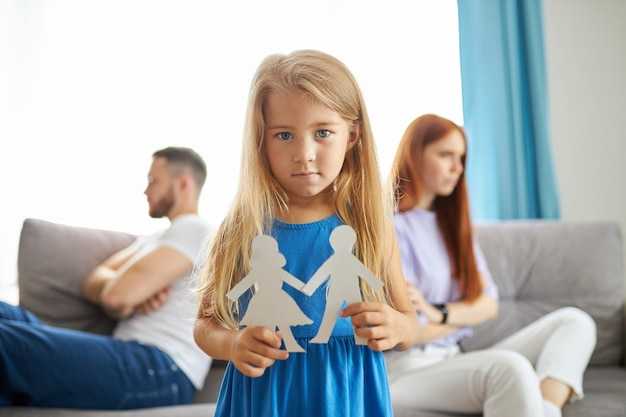You don’t pursue someone because they’re inherently extraordinary. You pursue them because they withhold themselves. The scarcer their affection, the stronger your craving becomes. If you grew up where affection was unpredictable and incomplete, you learned to treat rejection as normal — almost painless because it’s familiar. Today’s letter comes from a man who calls himself Shawn, and he writes, “Hello, Anna. About a month ago I discovered my wife lied to me. She’d been staying late at work, but afterwards she stopped by a male colleague’s house for a while without telling me. Alright, I’ve got my little highlight pen ready. I’ll mark details I want to revisit on a second pass, but let’s look at what’s happening in Shawn’s life. He says, “When I confronted her, she admitted she hated being at home and desperately needed space. She told me she still loved me but had no romantic feelings and didn’t expect that to change. When I asked to see her phone, she refused, saying it would invade her privacy. That was hard to accept, but I let it go. Even though it all seems suspicious, for some reason I still trust her when she says nothing was happening. I’ve cut our texting to an absolute minimum. We’ve been married about two years and she always told me I was the only one she would have married. She’s in the military and we moved overseas about a year ago. I’ve had trouble finding work and she told me she feels like she’s holding me back from living my life because I married her. We still share a home and sometimes watch movies or go out to dinner. In those moments everything feels fine, like it used to be. The issue is she frequently leaves without a word and won’t tell me where she’s going or who she’s with. It’s been devastating at times — I’ve been left alone to care for our animals. She has taken a few multi-day trips but did tell me where she would be. The first time she even offered to send pictures to prove she was where she said; I never asked for that. The whole thing has been very hot and cold. I don’t want a divorce, but I don’t know what to do next. I feel lost because although things have been rocky for a few months, our relationship used to be honest and healthy. Sorry for the long email, but any advice or insight would mean a lot. Thank you, Sean.” Okay, Sean. My heart goes out to you — that’s a brutal situation. I need to be blunt here because you’re in denial. You’re clinging to the belief that there’s no way she could be lying. From an outsider’s perspective, what you describe looks quite clear. To be fair, I’ll add the caveat: I’m not a therapist or a psychic; I can’t tell you everything she’s doing. But based on every detail you’ve shared, she’s almost certainly involved with someone else right now and hasn’t fully ended the marriage. It seems like she might be waiting to see if the other relationship lasts before making a decision. She’s shown you profound disrespect and indifference. Her claim that she feels like she’s preventing you from living your life is a familiar tactic — blaming you while she’s the one betraying the commitment you both made. That said, there’s truth in another sense: you are holding yourself back. By staying in that house, caring for pets alone, shrinking your own life, trying not to ask questions, and accepting that she can come and go without accounting for herself, you are not living fully. I hate to break it to you, Sean, but from where I sit I’d be about 95% sure she’s seeing someone else and that it’s only a matter of time before things change. If the affair or whatever is happening collapses and she returns contrite — “Sean, I hurt you, I’m sorry, I want to work on this” — could you genuinely forgive her and be happy again? When couples try to recover from infidelity, counseling becomes the top priority for anyone serious about rebuilding or uncovering the truth. But your wife’s reaction when you questioned her — blurting out that she hates being at home and desperately needs space — is telling. She said she still loved you but had no romantic feelings, effectively relegating you to the status of roommate. That can happen, but she was explicit about it. She’s emotionally checked out, she disappears without explanation, and she won’t let you see her messages. I don’t want to deliver bad news, but you deserve the truth: she has likely moved on. Calling her actions “sketchy” understates it — sketchy implies maybe suspicious; this appears much more definitive. If she says nothing’s happening, I don’t believe that’s accurate. She may feel guilty because you uprooted your life to move abroad for her while you’re still trying to find your footing in a foreign country. It looks like her life has become the priority, not a shared life. My recommendation is to begin moving forward. I’m pro-trying-to-save-marriages when both people are willing, so you can certainly ask her plainly: “Are you prepared to go to counseling and try to save this marriage?” If she refuses, that tells you everything you need to know. The fact that you still live together, watch movies, and have dinner occasionally — that’s the exact dynamic of living with a roommate, not an intimate partner. Even seeming normal in those moments doesn’t negate the deeper reality. The intermittent trips, the offers to send photos to reassure you — the very need for photos shows trust has been compromised. Yet you say you don’t want a divorce, so I want you to ask yourself: why not? I know divorce is devastating and contradicts the promises you made, but your uncertainty might also stem from fear and habit rather than what’s genuinely best for you. For your dignity and well-being, continuing to cohabit while being neglected like this is not healthy. You don’t have to follow my advice, but I believe staying in that situation will harm you. Being isolated in a foreign country without work and possibly without the local language is a dangerous mix; it can set the stage for depression, substance use, or other self-destructive responses. You need support — people who truly care, who will listen without insisting you stay quiet or pretend everything is fine. This relationship is deteriorating before your eyes while you linger in the shell of what it used to be. It’s heartbreaking, and it sounds like you carry abandonment wounds that make you cling to relationships and rationalize mistreatment. That pattern often comes from early neglect: many people who find my channel have learned to minimize their needs and do whatever it takes to preserve a relationship. As an adult you don’t have to keep doing that. You deserve to be with people who cherish, support, and respect you — who wouldn’t accept this kind of treatment. That’s what a true partner and friend do. I’m afraid the emotional bond in your marriage may be gone. While it’s possible someone could come back remorseful after an affair, it’s risky to bank your life on that possibility. Instead, focus on building a circle that supports you and getting out of the isolation and the degrading situation where your feelings and self-respect are ignored. Before it eats away at you, prioritize your mental and emotional safety. Also, consider whether there were warning signs early on — those red flags that show up during dating. Reflecting on them can be invaluable. Recognizing those early indicators is like finding gold; spotting them next time can speed your healing and help you transform the part of yourself that tolerates mistreatment. You don’t want to be the person who ignores red flags and stays despite being mistreated. You want to avoid people who can’t or won’t make real commitments and to remove yourself as soon as they begin to behave cruelly or disrespectfully. I’ll include a resource about red flags in the second link in the description below — a free download you can use. Also, for anyone who has faced this sort of pattern repeatedly, trauma can create a distinct set of symptoms and self-defeating behaviors around relationships, as it appears to have for Shawn. I have a quiz that outlines signs that childhood trauma may still be affecting how you relate to others; if you want to see whether that resonates for you and how many of those symptoms apply, I’ll put that in the first link in the description below. So beneath the video you’ll find two links: the dating quiz and the red-flags checklist. I’m giving you tools to help. If you liked this video, there’s another one you might really appreciate right here, and I’ll see you soon. Does fear of abandonment — or the terror of being alone — keep you stuck in unhealthy relationships, staying far past the point you wanted to leave because the idea of leaving feels unbearable?
Practical next steps you can take (including while you’re still living together)
- Get clear about what you want and a timeline. Decide what you need to see to stay in the marriage (e.g., couples counseling within X weeks, transparency about relationships, changed behaviors). Put that deadline in writing to yourself and use it as a compass for decisions.
- Ask direct, calm questions and set boundaries. A simple script: “I need clarity. Are you willing to go to couples counseling with me in the next two weeks? If you’re not willing, I need to make decisions that protect my emotional health.” Avoid accusatory language; the goal is clarity and to remove ambiguity that keeps you stuck.
- Document important incidents. Keep a dated journal of events (missed nights, unexplained trips, lies, refusals to share information). Documenting helps you see patterns clearly and will be useful for counselors or legal advice if needed.
- Protect practical essentials. Make sure your passport, ID, financial documents, and any joint-account records are safe and accessible. If you fear sudden changes, make copies and store them securely.
- Seek immediate mental-health support. Being isolated abroad is high-risk for depression and anxiety. Look for online therapists (many offer video sessions across countries), the military’s counseling resources (see below), or local expat support groups. If you feel overwhelmed or suicidal, contact emergency services or a crisis line right away.
If your spouse is in the military — specific resources and steps

- Military OneSource and Family Advocacy: Military OneSource (or your service’s equivalent) offers free counseling, legal referrals, and relocation assistance for service members and spouses.
- Base Legal Office / JAG: If you’re on or near a base, the legal office can explain local and military-specific rules about separation, custody of pets, and documentation. They can’t represent you in civilian courts, but they’ll help you understand your options.
- Military and Family Life Counselors (MFLC): Short-term, confidential counseling is often available to military families even when other services are limited.
- Embassy or Consulate: If you’re in a foreign country, your home-country embassy or consulate can help with emergency resources, legal referrals, and repatriation guidance if needed.
When to get legal or financial advice
If you suspect the marriage may end or your partner is controlling access to money or documents, consult a family-law attorney who understands the laws where you live (or military family law if applicable). If cost is an issue, ask the base legal office, legal aid clinic, or embassy for pro bono/legal-aid referrals. Consider opening a separate personal bank account if you can and make a plan for covering basic expenses.
Therapy and recovery options
- Individual therapy: Helps you process abandonment wounds, build boundaries, and plan next steps. Therapies that often help include CBT for practical coping and EMDR or trauma-focused therapy if past trauma is affecting current choices.
- Couples therapy: Only useful if both people are committed to the work. Look for a therapist experienced in infidelity-recovery if you pursue this path.
- Support groups and peer communities: Online forums, veterans’ spouse groups, or local expat meetups can reduce isolation and give practical tips from people in similar situations.
Boundaries to reclaim your dignity
- Set limits on cohabitation: agree on separate sleeping arrangements or clearly defined shared spaces if tension is high.
- Define contact rules about kids, pets, and finances so you’re not left carrying everything alone.
- Don’t accept ongoing secrecy. If transparency isn’t offered, you have permission to end ambiguity after your timeline passes.
Self-care and rebuilding

- Rebuild routine: regular exercise, structured job-search activities or volunteer work, learning the local language, and re-engaging hobbies help fight isolation and restore agency.
- Expand your support network: call family and friends, join local groups, or seek online therapy communities.
- Small, daily goals: they compound. Even simple wins (sending three job applications, attending a class, making a new friend) shift momentum away from helplessness.
Red flags to watch for in future relationships
- Lack of transparency about time, finances, or communications.
- Frequent disappearing acts and inconsistent availability.
- Blaming you for their choices or minimizing your feelings.
- Refusing couples-work or to take shared responsibility for the relationship.
Final notes
You’re allowed to want to save a marriage — and you’re also allowed to prioritize your safety and dignity. Make a short plan with concrete timelines, reach out for resources (especially military/support services if relevant), and build a practical safety net before making any irreversible decisions. Whether you ultimately stay and repair the relationship or leave, your goal should be the same: a life where you’re treated with respect and not left living in a state of chronic uncertainty.


 Why You’re Addicted to People Who Don’t Want You">
Why You’re Addicted to People Who Don’t Want You">

 Limerence Is Toxic Fix for Lonely, Joyless Life (4-Video Compilation)">
Limerence Is Toxic Fix for Lonely, Joyless Life (4-Video Compilation)">
 FWB & Attachment Styles: The Unexpected Connection">
FWB & Attachment Styles: The Unexpected Connection">
 Recognizing and Escaping Toxic Friendships (4-Video Compilation)">
Recognizing and Escaping Toxic Friendships (4-Video Compilation)">
 You’re NOT Overreacting — This Is Exactly How They Silence You">
You’re NOT Overreacting — This Is Exactly How They Silence You">
 ">
">
 10 Strategii Regulacji Emocji na Codzien.">
10 Strategii Regulacji Emocji na Codzien.">
 Czy Twoja Żona Uzależniona jest od Roślin?">
Czy Twoja Żona Uzależniona jest od Roślin?">
 Tylko domyślny rodzic to zrozumie.">
Tylko domyślny rodzic to zrozumie.">
 7 nawyków, które z łatwością rozpaliły jej podniecenie">
7 nawyków, które z łatwością rozpaliły jej podniecenie">
 Czy powinnam z nim zerwać?">
Czy powinnam z nim zerwać?">